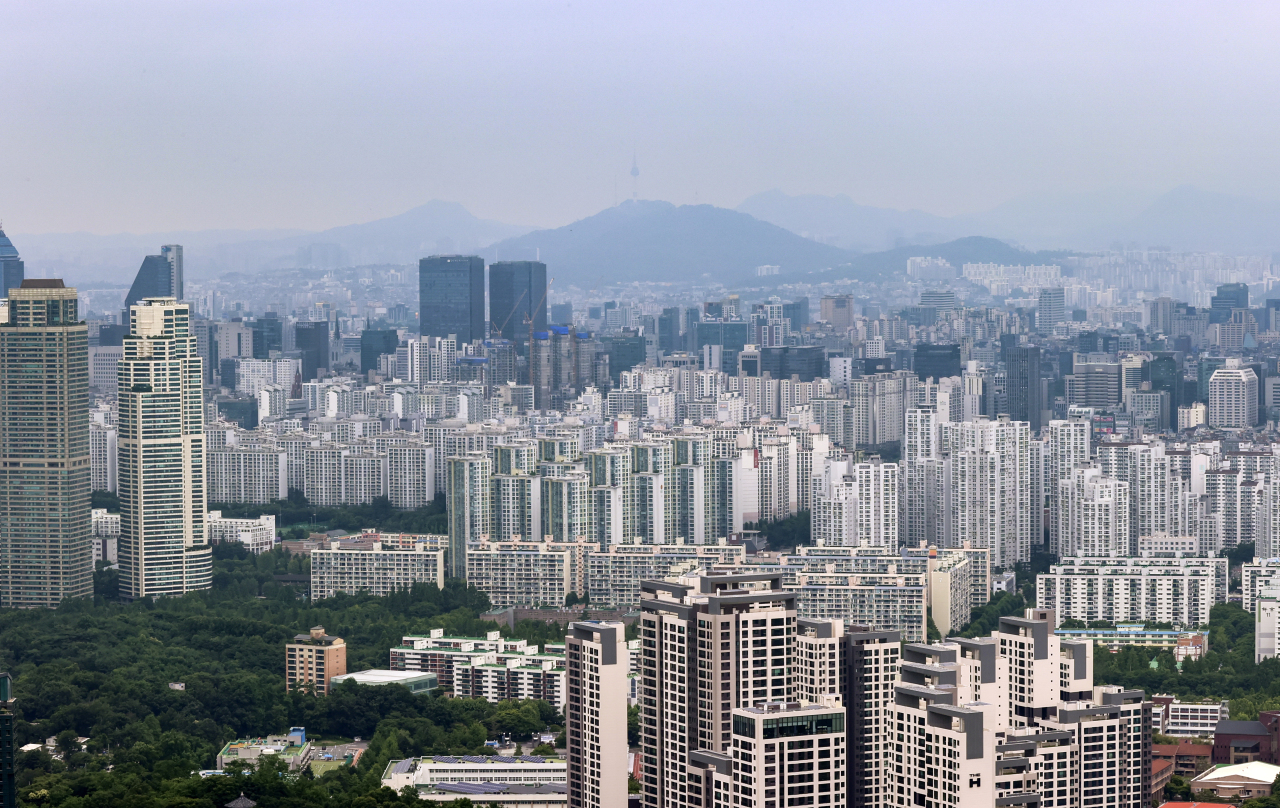 |
An aerial view of apartment complexes in Seoul. The photo was taken on June 11. (Yonhap) |
South Korea will ease mortgage rules for first-time homebuyers starting next month as part of a raft of real estate measures aimed at helping young people move up the property ladder, according to a real estate service provider on Monday.
Applying for a mortgage will become easier for both couples and individuals seeking to purchase a home for the first time, the Zigbang report said.
From July, couples with a combined annual income of less than 90 million won ($79,141) -- compared with the current 80 million won -- and individuals with an annual salary below 100 million won will be eligible to apply for mortgages. The current cap for individuals stands at below 90 million won.
The bar will be lowered to include properties valued below 800 million won, from the current 500 million won, in areas labeled by the government as price adjustment zones. Properties that fall under such category have seen their price gains jump more than double the inflation rate.
In areas deemed as “overly speculative” -- mostly Seoul and neighboring areas -- the bar will be lowered to include properties worth below 900 million won, compared with the current 600 million won.
The loan-to-value ratio will also be eased, but banks will be allowed to extend maximum of 400 million won for each borrowers.
On top of the relaxed mortgage rules, 40-year mortgage loans will be introduced in the second half of this year for the first time to allow young buyers aged below 39 and newlyweds to pay relatively low rates over a longer term. Like in the US, 40-year mortgage loans are rare here.
The easing of regulations comes as the government has come under intense public pressure to tame Seoul’s runaway housing prices.
The Moon Jae-in administration has levied heavier real estate taxes on multiple homeowners and tightened loan regulations through more than 20 sets of real estate rules. The rules have so far failed to put a dent in Seoul’s apartment prices. Home prices have shot up nearly 60 percent throughout his presidency since 2017, data showed.
Meanwhile, commercial banks here reportedly plan to reintroduce mortgage products with interest rate caps to the market on the back of a possible interest rate hike. The expected move has sparked concerns of increased debt burden the local households would have to shoulder, should the nation’s central bank increase its benchmark interest rate by the end of the year.
With the economy’s faster-than-expected recovery, driven by rebounding exports and growing signs of inflation, experts have said that the Bank of Korea is likely to carry out an earlier-than-expected rate hike in the second half of the year.
The mortgage products will offer borrowers with an interest rate in a fixed range for a certain amount of years, alleviating the risks of a rate spike. But the interest rate itself is expected to be higher than the regular mortgage products with no fixed rate.
By Jung Min-kyung (
mkjung@heraldcorp.com)








